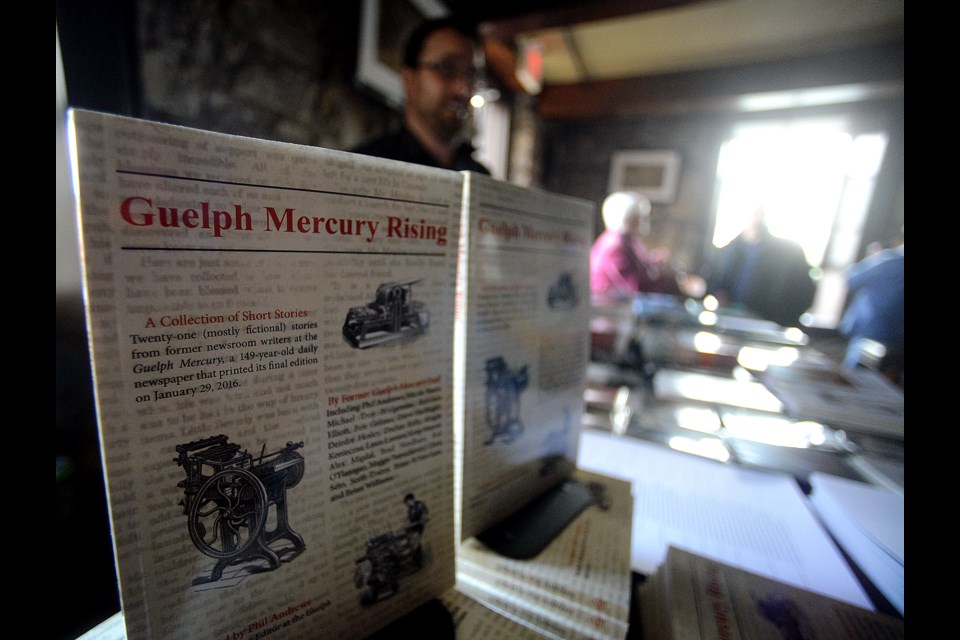Journalists are big on goodbyes.
It's a career trait long-rooted in many that engage in the shrinking craft, a final click at that moment that they officially step away from the keyboard and the connection with the community that they have done their work.
Most that worked at the dismantled Guelph Mercury never really got that chance. The end came swift and sudden in 2016, the doors closed on a week's notice by the parent Torstar Corp.
Heck, the Mercury itself barely got to say goodbye after 149 years.
Thanks to the efforts of former managing editor Phil Andrews and
Guelph Mercury Rising was officially launched Saturday at the most fitting of locations - the Albion Hotel, the Mercury’s willing neighbour where over the years where many a good story originated and many a bad one was forgotten.
“I had assumed that this coterie of writers that I had worked with and people that had worked at the newspaper before me would have a ready supply of short stories for me when I shone the bat symbol in the sky, and I was wrong,” Andrews said.
“But it all came together in the end. It ended up being a real labour of love to be the editor of this book and it ended up being a real honour as well to work one last time with people I had enjoyed working with and work with some people I had never worked with.”
The stories in the book cover quite a gamut of styles and subject matter, from Laura Lawson's tale of foreboding that taps into her Mohawk heritage to Brian Williams' fictionalized Guelph Storm player/dad story.
Jeremy Luke Hill of Vocamus Press published the book, said the idea of the book appealed to him when Andrews approached him because it was a way of looking both at what the Mercury was and a look forward at what those writers are doing now.
“I think it’s an important book in remembering
Saturday’s kick-off attracted a strong crowd of ex-Mercury employees, their families and friends, members of the community and dignitaries, with MP Lloyd Longfield, MPP Liz Sandals and Mayor Cam Guthrie all in the room, sharing their memories of the newspaper.
Guthrie reminisced of being a paper boy for the Mercury once upon a time, selling 30 new subscriptions on his
“The last time a lot of us were together was standing in front of that building and there were a lot of tears,” Guthrie said. “It’s just nice to see a lot of smiles in the room and to see where people are and where they landed.”
Sandals called herself the “oldest living surviving provider of content” for the Mercury, having first appeared as a high school student raising money for a new YMCA, which has since been replaced.
“It’s so important that a community have a paper of record. Politicians actually do talk that way, ‘what is the paper of record in a community,’” Sandals said in lamenting the loss of that in
Longfield remembers being told several times in his career that “reporters are not your friends.”
‘I said ‘yeah they are.' They live in our community. They’re not going to say what they want us to say they are going to say what they want to say … reporters aren’t here to make things look good for politicians, they’re here to tell the community what’s going on through their lens so that they can create the stories of the community.”
The former Mercury staffers who contributed to the book have scattered. A couple stayed in the business. Others have found other paths and are now teachers, professors, lawyers, video game creators and 911 operators.
But, as shown by Guelph Mercury Rising, there will always be a writer lurking in there somewhere.
Mercury rising is available at The Bookshelf, through www.vocamuspress.wordpress.com and, shortly, through the Guelph Chapters location. Sales support the Action Read Community Literacy Centre.
